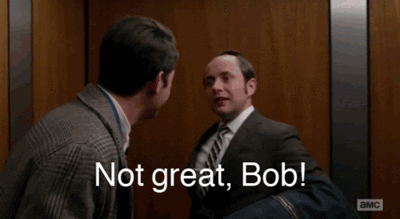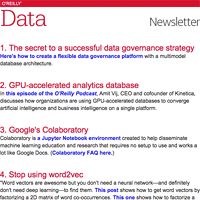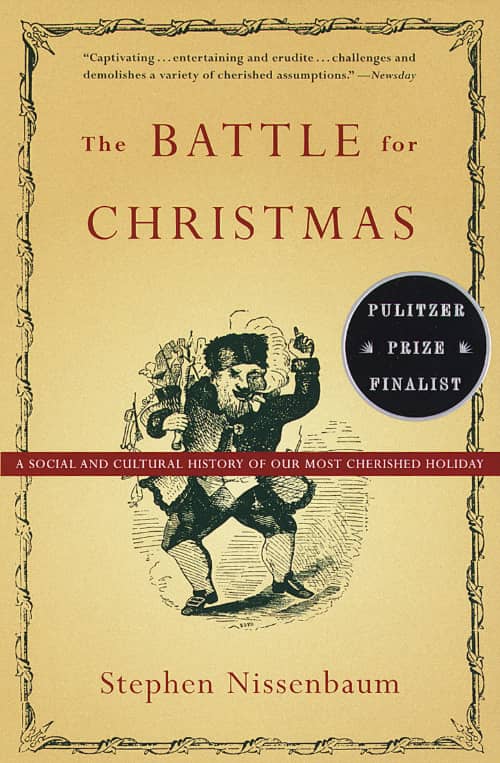Fellow Corvallians, this is a nice stroll through downtown. John M. Burt points out some bits of Corvallis history that we can still see today.
Posts from December 2018

Need some design inspiration? This is a great collection of comic book covers from 2018. I added quite a few to my list of comics to find. It also reminded me that I loved the disorienting Why Art? from earlier this year and I don't think I mentioned it here.
My Year in Social Media
Last year around this time I talked about trying to stop contributing to corporate social media: Facebook-Free in Twenty Eightee-n. That went ok. I stopped using Instagram altogether. I posted three pictures to Facebook in 2018. I deleted my Twitter account in August (Twitter Breakup) and then went back and claimed my username so it couldn't be used for evil. (I got my username back too late to save the 11-year archive which is mildly annoying—but also ok.) And I do still read Twitter ocassionally through a significantly smaller window. I didn't post to Flickr at all. (That might change now that they're under new ownership.)
So that's some kind of progress. How is my current relationship with social media? To put it in meme terms:

Leaving social media does not make it go away. If you work on the web in any capacity (I do), the big sites like Facebook, Twitter, and Google are omnipresent. It seemed like each week of 2018 brought a new jaw-dropping revelation of Facebook mismanagement. Google leaked user data, hid it, and employees were in the streets asking for fair working conditions. Twitter is a platform for Nazis because they incentivize engagement above all things and do not adequately handle abuse. I agree with Anand Giridharadas who posted this Twitter thread: "Trying to fight a predatory, politically connected monopoly through heroic personal responsibility doesn't work." We need regulation.
So that's depressing! I wouldn't call it heroic responsibility, but I did change my online habits quite a bit in 2018. I now read and post social messages via Mastodon which is a distributed kinder, gentler Twitter. I wish more people would make the switch so I could close my Twitter reading window altogether. I stopped posting photos online which is something I used to enjoy. I'll make an effort to post them here more frequently.
In October I did start posting more frequently to this site which means I also started paying more attention to my site metrics. Last week I made a snarky post about Google Analytics which was my poor way of processing this. I deleted it because the fact is, Google Analytics is a necessary tool if you work on the web. Necessary, but I don't like the way it turns people into numbers. So that's a tension I'm trying to live with and the answer might be that I shouldn't use web marketing tools for personal projects. I'd like to have a way to know if what I'm writing here is being read and resonating, but not if it means getting alerts and notifications that traffic is dropping, engagement is lower, and people are bouncing away forever. There has to be a more humane way to visualize and engage with web audiences.
My wish for social media in 2019 is for new leadership at all of the major web companies. I don't think we'll ever see them disappear, nationalized, or regulated in a meaningful way. I'd like them to have a less central role in how we create and share online. I think some new leaders could steer the companies away from growth-at-all-costs toward a more ethical relationship with users. I'd like to see them usher in the era of maintenance! That's where they take the amazing tools they've built and optimize them to work within society.
So that's some kind of progress. How is my current relationship with social media? To put it in meme terms:

Leaving social media does not make it go away. If you work on the web in any capacity (I do), the big sites like Facebook, Twitter, and Google are omnipresent. It seemed like each week of 2018 brought a new jaw-dropping revelation of Facebook mismanagement. Google leaked user data, hid it, and employees were in the streets asking for fair working conditions. Twitter is a platform for Nazis because they incentivize engagement above all things and do not adequately handle abuse. I agree with Anand Giridharadas who posted this Twitter thread: "Trying to fight a predatory, politically connected monopoly through heroic personal responsibility doesn't work." We need regulation.
So that's depressing! I wouldn't call it heroic responsibility, but I did change my online habits quite a bit in 2018. I now read and post social messages via Mastodon which is a distributed kinder, gentler Twitter. I wish more people would make the switch so I could close my Twitter reading window altogether. I stopped posting photos online which is something I used to enjoy. I'll make an effort to post them here more frequently.
In October I did start posting more frequently to this site which means I also started paying more attention to my site metrics. Last week I made a snarky post about Google Analytics which was my poor way of processing this. I deleted it because the fact is, Google Analytics is a necessary tool if you work on the web. Necessary, but I don't like the way it turns people into numbers. So that's a tension I'm trying to live with and the answer might be that I shouldn't use web marketing tools for personal projects. I'd like to have a way to know if what I'm writing here is being read and resonating, but not if it means getting alerts and notifications that traffic is dropping, engagement is lower, and people are bouncing away forever. There has to be a more humane way to visualize and engage with web audiences.
My wish for social media in 2019 is for new leadership at all of the major web companies. I don't think we'll ever see them disappear, nationalized, or regulated in a meaningful way. I'd like them to have a less central role in how we create and share online. I think some new leaders could steer the companies away from growth-at-all-costs toward a more ethical relationship with users. I'd like to see them usher in the era of maintenance! That's where they take the amazing tools they've built and optimize them to work within society.
Best Games of the Year
This is my completely arbitrary take on my favorite games from this year.
The top honor goes to Dungeons & Dragons 5th Edition.

Specifically, Curse of Strahd which my game group has been playing for all of 2018 and probably most of 2017. It has a good balance of role-playing, puzzles, and fighting and the atmosphere is just different enough from the default D&D world to keep you guessing without feeling completely foreign.
I've had a lot of fun playing Blood Rage lately. It's set in the land of Norse myth and at first glance it looks and sounds like a classic player vs. player fighting for area control game—and it is that! But there's a surprising amount of strategy involved. There are some great mechanics around losing area control which makes it tough to know how to block other players. It's a great combination of analysis and action.

Root is another very different kind of area control game. It has asymmetrical play which means each player is using different mechanics to get victory points. It takes some getting used to and I had to play through a game before I even started thinking about how to optimize my turn. Having an experienced Root player on hand to answer questions is also a plus. Once you make it though those barriers, the game has a lot of turns and surprises and gives you a lot to think about. I found myself going over potential Root strategies days after playing.

The classics are classics for a reason. I played a lot of Settlers of Catan this year because it's my family's favorite game. Even kids who can't read can get the hang of Catan pretty quickly. It's also a great way to introduce someone to Eurogames if their only experience with board games is Monopoly and Scrabble. (Which are fun too but not the full spectrum of what's possible!)
A friend brought a self-printed DIY version of The Mind to a game night because he'd heard it was popular in Germany and there wasn't a way to get a copy in the US. We played this weird game where you put cards in numeric order with sly communication and luck and we were genuinely cheering our successes. I'm not sure it counts as a game, but whatever it is it's dramatic and everyone has fun.

I've been having fun playing KeyForge with my son as a nice change of pace (for me) from Magic. KeyForge has a clever design where every deck has a unique set of cards and is evenly matched against other decks. The deck names are algorithmically generated, sometimes with humorous results. It is a nicely designed resource-gathering game where you can use cards without an energy-style mechanic. It feels a lot lighter than Magic but it has some complexity with different styles of play (fighting vs. stealing vs. spells) possible through the different factions. If you think you'd enjoy Magic without the deck building/collecting aspects you'll probably enjoy KeyForge.
That's it—happy gaming!
The top honor goes to Dungeons & Dragons 5th Edition.

Specifically, Curse of Strahd which my game group has been playing for all of 2018 and probably most of 2017. It has a good balance of role-playing, puzzles, and fighting and the atmosphere is just different enough from the default D&D world to keep you guessing without feeling completely foreign.
Best Board Games

I've had a lot of fun playing Blood Rage lately. It's set in the land of Norse myth and at first glance it looks and sounds like a classic player vs. player fighting for area control game—and it is that! But there's a surprising amount of strategy involved. There are some great mechanics around losing area control which makes it tough to know how to block other players. It's a great combination of analysis and action.

Root is another very different kind of area control game. It has asymmetrical play which means each player is using different mechanics to get victory points. It takes some getting used to and I had to play through a game before I even started thinking about how to optimize my turn. Having an experienced Root player on hand to answer questions is also a plus. Once you make it though those barriers, the game has a lot of turns and surprises and gives you a lot to think about. I found myself going over potential Root strategies days after playing.

The classics are classics for a reason. I played a lot of Settlers of Catan this year because it's my family's favorite game. Even kids who can't read can get the hang of Catan pretty quickly. It's also a great way to introduce someone to Eurogames if their only experience with board games is Monopoly and Scrabble. (Which are fun too but not the full spectrum of what's possible!)
Best Card Games

A friend brought a self-printed DIY version of The Mind to a game night because he'd heard it was popular in Germany and there wasn't a way to get a copy in the US. We played this weird game where you put cards in numeric order with sly communication and luck and we were genuinely cheering our successes. I'm not sure it counts as a game, but whatever it is it's dramatic and everyone has fun.

I've been having fun playing KeyForge with my son as a nice change of pace (for me) from Magic. KeyForge has a clever design where every deck has a unique set of cards and is evenly matched against other decks. The deck names are algorithmically generated, sometimes with humorous results. It is a nicely designed resource-gathering game where you can use cards without an energy-style mechanic. It feels a lot lighter than Magic but it has some complexity with different styles of play (fighting vs. stealing vs. spells) possible through the different factions. If you think you'd enjoy Magic without the deck building/collecting aspects you'll probably enjoy KeyForge.
That's it—happy gaming!
Good evening Newsletter Wednesday fans! :crickets: If you’re reading this you’re probably already familiar with kottke.org, one of the last surviving general interest weblogs (or “blogs” for short). It survives because Jason finds amazing things and describes them in ways that make us amazed with him. What you might not know is that he teamed up with frequent kottke guest-blogger Tim Carmody to produce a weekly newsletter recap called Noticing. Even though I keep up with the site in near real-time, I appreciate the way the weekly version ties posts together into themes. The newsletter has been going for a year now and it’s always a must-read.
Dinah Sanders has some great tips for incorporating 3D terrain into D&D games. She also has some good accessory resources at the end. We’ve come a long way from graph paper.
See also: My 2016 post about Modern D&D Tools.
See also: My 2016 post about Modern D&D Tools.
Nothing, to me, says end-of-the-year like a numeric list. And no one lists things like David Rees. Join him for the 10th year of rounding up the best of the year(s). Who can forget the most unforgettable things of 2018? (Not David Rees.)

I'm a habitual iPhone settings-changer and I still found settings to tweak in this article. The central premise of this article is that your phone should be a tool that helps you not a director that tells you how to spend your time and attention. It's a good companion piece to Cal Newport's Deep Work—a book-length why behind changing your relationship with your phone.

I feel seen. And mocked. The only cure for this burn is more bokeh.

Good morning newsletter Wednesday fans! :tumbleweed: This is my favorite weekly newsletter from O'Reilly with industry news about all things data: storage, visualization, and machine learning. I feel like it has a slice of news that I don't see from other sources. I also enjoy their web platform newsletter I just happen to already subscribe to many, many web news sources. While I have you here, check out their Product Manager and Design humble bundle happening for the next 12 days. You can get a virtual stack of great books about design for under $15. It includes Articulating Design Decisions which I've always been curious about.

This is a good summary of the twists and turns in the Facebook saga. What makes this article interesting to me is that Mother Jones discusses their own relationship with Facebook over the years. Facebook sent them lots of traffic at the height of "Facebook as news feed" and they profited from it. This kind of symbiotic media relationship is a big part of the Facebook story but most media outlets don't want to discuss it. For example see: CBC's longstanding tech columnist condemns the broadcaster's cozy relationship with Facebook. Companies are still driving traffic to Facebook every day by encouraging their users to connect and subscribe via Facebook. Those solicitations are an endorsement of Facebook. We should discuss this part of the system.

This is a fun article aimed at aspiring visual artists but I think there's good advice here for anyone who makes things. I especially appreciated Embed thought in material and Learn the Difference Between Subject Matter and Content.
Visit the ghost of Christmas past.

▲ There is no dark side of the moon, really. Matter of fact, it's all dark. The only thing that makes it look light is the sun.
This post resonated on many levels, especially: "Today you have to choke your way through the money-making miasma to find the joy." I agree that a separate search engine would be nice but automatically differentiating indie content from sponsored content seems like an impossible task. Maybe more human curation of the web is the answer. (Said by a human who likes to curate the web.)
I love these corruptions of ornamental patterns by Robert Dawson—especially the motion blur plate. [via mltshp] This reminded me of the fantastic book Grammar of Ornament. You can browse through the book at the Internet Archive: The grammar of ornament.

What's the german word for simultaneously terrifying and exhilarating and your fingers are crossed for both not destroying the atmosphere and maybe helping it and how much damage could it possibly do but also a lot?

The folks who produce Cool Tools have a side hustle (?) newsletter called Recomendo. Each week they send six recommendations of cool stuff. Most of the time it's a product or tool (like Cool Tools) but sometimes it's a tech tip or an article. It's always great. And they recently packaged up 500 of their recommendations into a book: Recomendo: 500 brief reviews of cool stuff. Now we have an answer to the age-old question: who will recommend the recommenders? This guy.

I hesitate to share any "war on Christmas" garbage—even to refute it—but I think this article is a nice summary of why centralized global social networks aren't the best platform to use for joking with your friends. Every context shift weaponizes the jokes in a different way; whether it's for ad view money or political outrage or most likely both. We have other ways to share jokes! [via waxy links]

The Battle for Christmas by Stephen Nissenbaum
If you like to take the mystery out of things by putting them into a historical context have I got a book for you. The Battle for Christmas is not about the phrase "war on Christmas" and all of the BS that conjures. This book is about how Christmas evolved from a rowdy public festival into the more family-focused holiday people practice today. Nissenbaum also explores the origins of Christmas trees, Santa, and gift-giving. He supports his arguments with detailed historic documents and reading it feels like visting a familiar but alternate universe. I like to revisit this book every year around this time as my family cuts down a tree, hauls it inside, and puts shiny things on it.
For a lighter take on the history behind Christmas traditions check out Mark Forsyth's A Christmas Cornucopia. I'm a big fan of Forsyth's books about language (especially The Elements of Eloquence) and he brings his same humor and love of language to this topic.
For a lighter take on the history behind Christmas traditions check out Mark Forsyth's A Christmas Cornucopia. I'm a big fan of Forsyth's books about language (especially The Elements of Eloquence) and he brings his same humor and love of language to this topic.

Justin Kosslyn is addressing global security concerns at Google and here he argues that friction can be a positive force in technology. We tend to think of friction as something that should be removed from every aspect of our lives. (e.g. If we could only do our banking transactions faster than we could spend more time doing what we want.) Kosslyn argues, "It’s time to bring friction back. Friction buys time, and time reduces systemic risk. A disease cannot become an epidemic if patients are cured more quickly than the illness spreads." Ezra Klein at Vox ties this idea to the success of podcasting in The case for slowing everything down a bit: "I believe that one reason podcasts have exploded is that they carry so much friction: They’re long and messy, they often take weeks or months to produce, they’re hard to clip and share and skim — and as a result, they’re calmer, more human, more judicious, less crazy-making." Meanwhile, Farhad Manjoo signs off of his NYT technology column with a similar sentiment in How to Survive the Next Era of Tech (Slow Down and Be Mindful): "Adopt late. Slow down."
